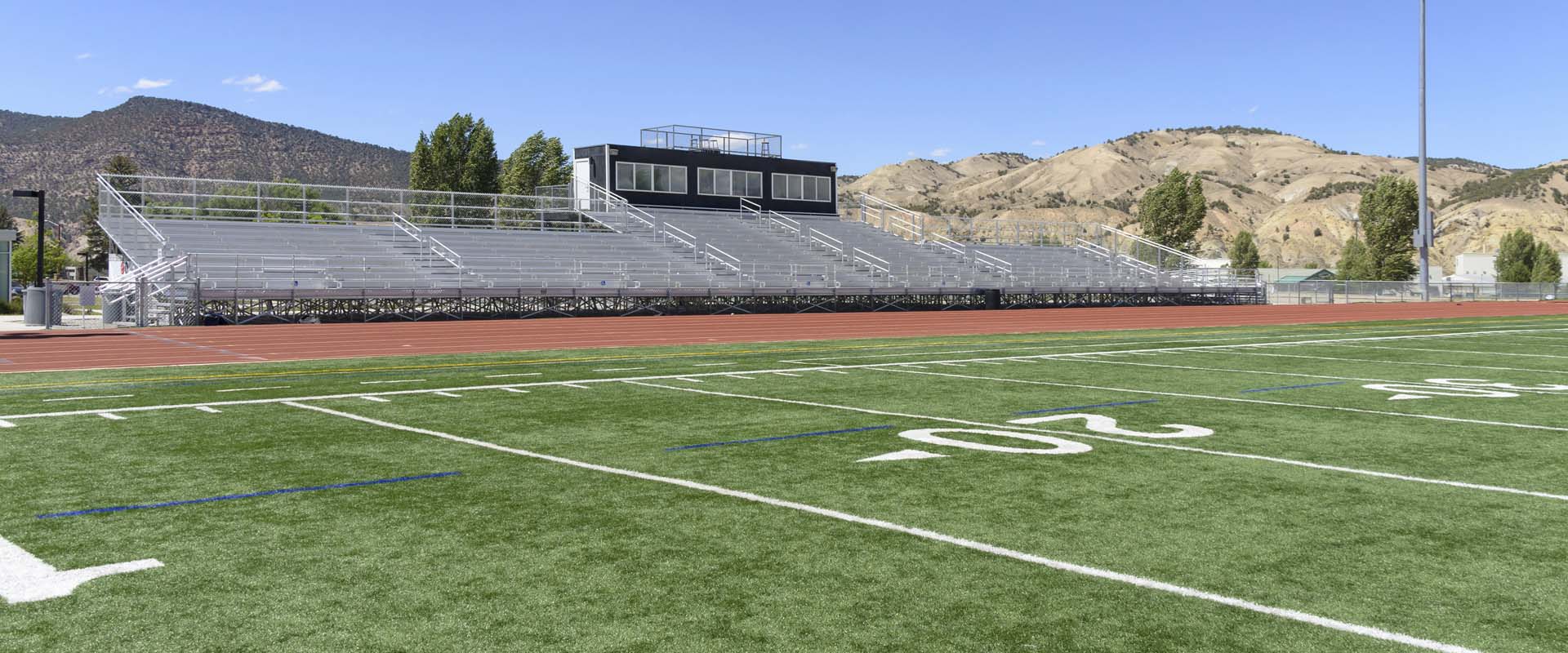Redefining Sex: How the Office of Civil Rights Distinguishes Title VII from Title IX in Relation to Transgender Athletes

December 2020
Number 86
The United States Supreme Court's landmark decision in Bostock v. Clayton County Georgia (2020) 590 U.S. __ [140 S.Ct. 1731] is producing ripple effects in the legal community. In Bostock, the Supreme Court held that the scope of Title VII of the Civil Rights Act of 1965 (Title VII) which, in part, prohibits employment discrimination based on sex, extends its workplace protections to people based on their sexual orientation or transgender status (and presumably their gender identity, though the Court's opinion did not include a separate analysis). (See 2020 Client News Brief No. 50.) Now that the Supreme Court has affirmed that employers who fire, or otherwise discriminate against employees because they are "homosexual or transgender" are in violation of Title VII, we await to see how this holding will impact other federal laws offering protections "based on sex."
Background
One statute now placed under scrutiny following the Bostock holding is Title IX of the Education Amendments Act of 1972 (Title IX), which provides:
The United States Department of Education's Office of Civil Rights (OCR) is the latest entity to weigh in on how Bostock will impact discrimination and harassment under Title IX. On August 31, 2020, OCR issued two separate letters referencing the Bostock decision. The first, a Letter of Notification opening a complaint for investigation, articulates OCR's position that discrimination on the basis of an individual's sexual orientation or transgender status in schools is prohibited under Title IX, just as it is under Title VII. In contrast, the second letter, a Revised Letter of Impending Enforcement Actions, expresses the OCR opinion that Bostock's holding, even if it were controlling over Title IX, would not afford transgender student-athletes access to single-sex athletic teams.
Distinguishing Title VII from Title IX
OCR's first letter revolved around a student's complaint that she was discriminated against for being gay. While Title IX does not explicitly mention discrimination on the basis of sexual orientation, OCR expressed that it will follow the rationale from the Bostock decision that "discriminating against a person based on their homosexuality or identification as transgender generally involves discrimination on the basis of their biological sex." (Emphasis added.) This is in line with the Supreme Court's reasoning that sexual orientation and transgender status "are inextricably bound up with sex" as the term is used in Title VII, and analogously, in Title IX.However, in that same letter, OCR placed the following qualifier in a footnote:
OCR expands on the meaning of this footnote in its second August 31 issuance. This letter originated from a complaint filed by several cisgender female student-athletes who claimed they were being denied equal access to the various benefits associated with athletic participation due to a policy allowing transgender student-athletes to compete against the complainants in women's track and field events. (See 2020 Client News Brief No. 48.) OCR discusses the various differences between Title VII and Title IX, and argues that one of Title IX's crucial purposes was protecting women's and girl's athletic opportunities.
Although Bostock does not control OCR's interpretation of Title IX—the Supreme Court limited its holding to Title VII discrimination—OCR believes that if Bostock applied to school athletics, it would merely prevent a biologically male student from competing against females on a sex-segregated team or league. OCR proposes that to discriminate, one must treat an individual worse than others who are similarly situated. OCR points out that the Bostock decision states, "An individual's homosexual or transgender status is not relevant in employment decisions," but that "there are circumstances in which a person's sex is relevant, and distinctions based on the two sexes in such circumstances are permissible because the sexes are not similarly situated." Therefore, under Title IX, schools may offer separate-sex sports teams because men and women are not similarly situated due to their physiological differences. Thus, according to OCR, in respect to sex-specific sports teams, transgender student-athletes can properly be separated based on biological sex under Title IX.
Takeaways
The two letters examined above articulate OCR's position that discrimination on the basis of an individual's sexual orientation or transgender status in schools is prohibited under Title IX, just as it is under Title VII. However, this rationale yields a different conclusion concerning the participation of transgender student-athletes in sex-specific sports. OCR's current position may change under the new administration.
Please note that California offers students greater protection than federal law. K-12 school districts should continue to follow Assembly Bill 1266, which grants student-athletes the ability to participate in sex-segregated sports, and use facilities consistent with their gender identity and expression, regardless of the sex listed on the student's record or assigned at birth.
If you have any questions regarding Bostock or OCR's position on transgender student-athletes, please contact one of the authors of this Client News Brief or an attorney at one of our eight offices located statewide. You can also subscribe to our podcast, follow us on Facebook, Twitter and LinkedIn or download our mobile app.
Number 86
The United States Supreme Court's landmark decision in Bostock v. Clayton County Georgia (2020) 590 U.S. __ [140 S.Ct. 1731] is producing ripple effects in the legal community. In Bostock, the Supreme Court held that the scope of Title VII of the Civil Rights Act of 1965 (Title VII) which, in part, prohibits employment discrimination based on sex, extends its workplace protections to people based on their sexual orientation or transgender status (and presumably their gender identity, though the Court's opinion did not include a separate analysis). (See 2020 Client News Brief No. 50.) Now that the Supreme Court has affirmed that employers who fire, or otherwise discriminate against employees because they are "homosexual or transgender" are in violation of Title VII, we await to see how this holding will impact other federal laws offering protections "based on sex."
Background
One statute now placed under scrutiny following the Bostock holding is Title IX of the Education Amendments Act of 1972 (Title IX), which provides:
No person in the United States shall, on the basis of sex, be excluded from participation in, denied the benefits of, or be subjected to discrimination under any education program or activity receiving Federal financial assistance.
The United States Department of Education's Office of Civil Rights (OCR) is the latest entity to weigh in on how Bostock will impact discrimination and harassment under Title IX. On August 31, 2020, OCR issued two separate letters referencing the Bostock decision. The first, a Letter of Notification opening a complaint for investigation, articulates OCR's position that discrimination on the basis of an individual's sexual orientation or transgender status in schools is prohibited under Title IX, just as it is under Title VII. In contrast, the second letter, a Revised Letter of Impending Enforcement Actions, expresses the OCR opinion that Bostock's holding, even if it were controlling over Title IX, would not afford transgender student-athletes access to single-sex athletic teams.
Distinguishing Title VII from Title IX
OCR's first letter revolved around a student's complaint that she was discriminated against for being gay. While Title IX does not explicitly mention discrimination on the basis of sexual orientation, OCR expressed that it will follow the rationale from the Bostock decision that "discriminating against a person based on their homosexuality or identification as transgender generally involves discrimination on the basis of their biological sex." (Emphasis added.) This is in line with the Supreme Court's reasoning that sexual orientation and transgender status "are inextricably bound up with sex" as the term is used in Title VII, and analogously, in Title IX.However, in that same letter, OCR placed the following qualifier in a footnote:
By contrast, Bostock does not impact OCR's regulations or enforcement of Title IX regarding schools that separate students by biological sex in the context of intimate facilities—such as locker rooms and bathrooms—or sports teams, athletic opportunities, or other substantive areas for which Title IX includes specific statutory and regulatory exemptions outlining when consideration of biological sex is permitted.
OCR expands on the meaning of this footnote in its second August 31 issuance. This letter originated from a complaint filed by several cisgender female student-athletes who claimed they were being denied equal access to the various benefits associated with athletic participation due to a policy allowing transgender student-athletes to compete against the complainants in women's track and field events. (See 2020 Client News Brief No. 48.) OCR discusses the various differences between Title VII and Title IX, and argues that one of Title IX's crucial purposes was protecting women's and girl's athletic opportunities.
Although Bostock does not control OCR's interpretation of Title IX—the Supreme Court limited its holding to Title VII discrimination—OCR believes that if Bostock applied to school athletics, it would merely prevent a biologically male student from competing against females on a sex-segregated team or league. OCR proposes that to discriminate, one must treat an individual worse than others who are similarly situated. OCR points out that the Bostock decision states, "An individual's homosexual or transgender status is not relevant in employment decisions," but that "there are circumstances in which a person's sex is relevant, and distinctions based on the two sexes in such circumstances are permissible because the sexes are not similarly situated." Therefore, under Title IX, schools may offer separate-sex sports teams because men and women are not similarly situated due to their physiological differences. Thus, according to OCR, in respect to sex-specific sports teams, transgender student-athletes can properly be separated based on biological sex under Title IX.
Takeaways
The two letters examined above articulate OCR's position that discrimination on the basis of an individual's sexual orientation or transgender status in schools is prohibited under Title IX, just as it is under Title VII. However, this rationale yields a different conclusion concerning the participation of transgender student-athletes in sex-specific sports. OCR's current position may change under the new administration.
Please note that California offers students greater protection than federal law. K-12 school districts should continue to follow Assembly Bill 1266, which grants student-athletes the ability to participate in sex-segregated sports, and use facilities consistent with their gender identity and expression, regardless of the sex listed on the student's record or assigned at birth.
If you have any questions regarding Bostock or OCR's position on transgender student-athletes, please contact one of the authors of this Client News Brief or an attorney at one of our eight offices located statewide. You can also subscribe to our podcast, follow us on Facebook, Twitter and LinkedIn or download our mobile app.
Disclaimer: As the information contained herein is necessarily general, its application to a particular set of facts and circumstances may vary. For this reason, this News Brief does not constitute legal advice. We recommend that you consult with your counsel prior to acting on the information contained herein.





